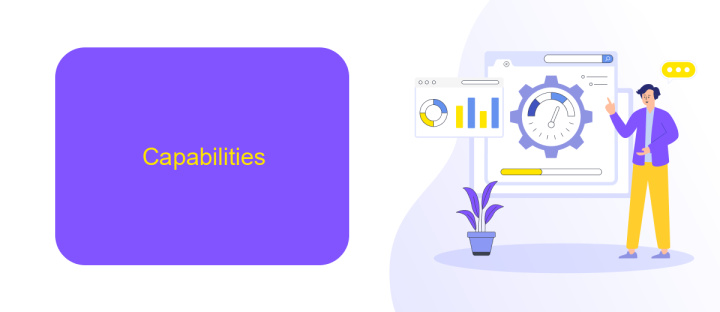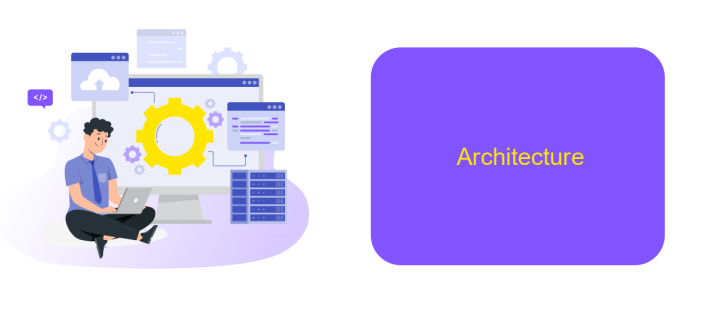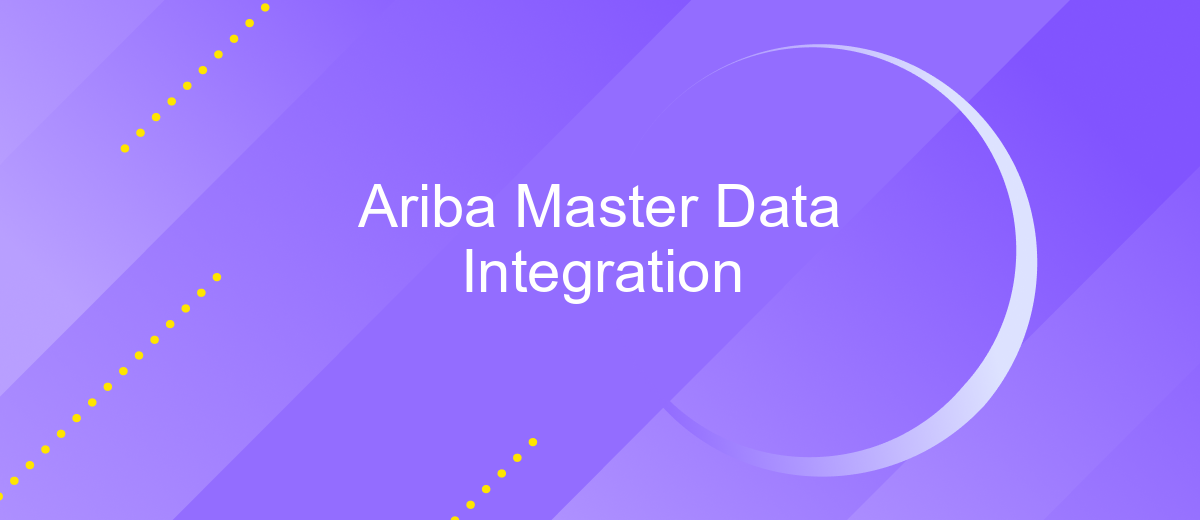Ariba Master Data Integration
Ariba Master Data Integration is a crucial process for organizations aiming to streamline their procurement and supply chain operations. By seamlessly connecting master data between Ariba and ERP systems, companies can ensure data consistency, reduce manual errors, and improve decision-making. This article explores the key benefits, challenges, and best practices for effective Ariba Master Data Integration.
Overview
Ariba Master Data Integration is a crucial process for ensuring seamless data flow between various business systems and the Ariba network. This integration helps in maintaining accurate and consistent master data, which is essential for effective procurement and supply chain management. By integrating master data, organizations can achieve better data accuracy, reduce manual data entry, and improve overall operational efficiency.
- Automated data synchronization between ERP systems and Ariba
- Reduction of data discrepancies and errors
- Enhanced visibility and control over procurement processes
- Improved supplier collaboration and communication
To facilitate Ariba Master Data Integration, businesses can leverage integration platforms like ApiX-Drive. ApiX-Drive offers a user-friendly interface and powerful tools to automate data transfer between various systems without the need for extensive coding. This ensures that master data is always up-to-date and consistent across all platforms, enabling organizations to focus on strategic activities rather than manual data management.
Capabilities

Ariba Master Data Integration offers seamless capabilities to synchronize and manage critical business data across various systems. By leveraging advanced data mapping and transformation tools, it ensures that all relevant information—such as supplier details, product catalogs, and pricing data—is accurately reflected in the Ariba network. This integration minimizes manual data entry, reduces errors, and enhances data consistency, ultimately leading to more efficient procurement processes and better decision-making.
Additionally, the integration can be further streamlined using services like ApiX-Drive, which facilitate the automation of data flows between Ariba and other enterprise systems. ApiX-Drive allows users to set up custom workflows without requiring extensive technical expertise, thereby accelerating the integration process. With real-time data synchronization and the ability to handle complex data transformations, ApiX-Drive ensures that your Ariba Master Data Integration is both robust and adaptable to evolving business needs.
Benefits

Integrating Ariba Master Data offers numerous advantages that can significantly enhance business operations. By automating data synchronization between Ariba and other systems, companies can ensure data consistency and accuracy, leading to more informed decision-making. Furthermore, seamless integration eliminates the need for manual data entry, reducing the risk of errors and saving valuable time.
- Improved Data Accuracy: Automated synchronization ensures that data is consistent across all platforms, minimizing discrepancies.
- Enhanced Efficiency: Eliminating manual data entry reduces errors and frees up time for more strategic tasks.
- Better Decision-Making: Accurate and up-to-date data enables better analysis and informed decisions.
- Cost Savings: Streamlining data processes reduces operational costs and resource expenditure.
- Scalability: Integration solutions like ApiX-Drive provide scalable options that grow with your business needs.
Using a service like ApiX-Drive can facilitate the integration process by providing an easy-to-use platform for connecting Ariba with various other systems. This ensures a smooth and efficient data flow, allowing businesses to focus on their core activities while maintaining robust data management practices.
Architecture

Ariba Master Data Integration architecture is designed to seamlessly connect and synchronize data between various enterprise systems. The architecture leverages robust APIs and middleware solutions to ensure real-time data accuracy and integrity. At its core, it integrates with ERP systems, procurement platforms, and other business applications to streamline data flow and enhance operational efficiency.
The integration process involves multiple layers, each responsible for specific tasks such as data extraction, transformation, and loading (ETL). Security protocols and data validation mechanisms are embedded to safeguard sensitive information and maintain compliance with industry standards.
- Data Extraction: Pulls data from source systems like ERPs and CRMs.
- Data Transformation: Converts data into a compatible format for Ariba.
- Data Loading: Pushes the transformed data into Ariba for utilization.
- Security: Implements encryption and authentication to protect data.
To streamline the integration setup, services like ApiX-Drive can be utilized. ApiX-Drive offers a user-friendly interface to configure and automate data flows between Ariba and other systems without extensive coding. This ensures that the integration process is efficient, scalable, and adaptable to changing business needs.
Use Cases
One common use case for Ariba Master Data Integration is streamlining procurement processes by ensuring that all relevant supplier data is up-to-date and consistent across systems. This can significantly reduce errors and inefficiencies, leading to more accurate purchase orders and invoices. For instance, integrating Ariba with ERP systems like SAP allows for seamless data synchronization, ensuring that supplier information, pricing, and contract terms are always current. This integration can be further enhanced using services like ApiX-Drive, which offers easy-to-use tools for automating data transfers between different platforms without requiring extensive technical knowledge.
Another use case involves enhancing supplier relationship management by providing a unified view of supplier performance and compliance data. By integrating Ariba with other business intelligence tools, companies can gain deeper insights into supplier metrics, such as delivery times, quality of goods, and adherence to contract terms. This holistic view enables better decision-making and strategic sourcing. ApiX-Drive can facilitate this integration by providing pre-built connectors and customizable workflows, ensuring that data flows smoothly between Ariba and various analytics platforms, thereby improving the overall efficiency and effectiveness of supplier management.
FAQ
What is Ariba Master Data Integration?
How can I automate the integration of master data between Ariba and my ERP system?
What are the common challenges in Ariba Master Data Integration?
Can I integrate Ariba with multiple systems simultaneously?
How do I ensure data security during Ariba Master Data Integration?
Time is the most valuable resource in today's business realities. By eliminating the routine from work processes, you will get more opportunities to implement the most daring plans and ideas. Choose – you can continue to waste time, money and nerves on inefficient solutions, or you can use ApiX-Drive, automating work processes and achieving results with minimal investment of money, effort and human resources.

